I wrote this article in Japanese and translated it into English using ChatGPT. I also used ChatGPT to create the English article title. I did my best to correct any translation mistakes, but please let me know if you find any errors. By the way, I did not use ChatGPT when writing the Japanese article. The entire article was written from scratch by me, Saikawa Goto.
Introduction
Movies and books covered in this article
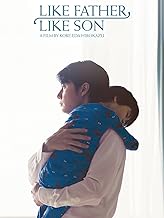
I will write an article about this movie/book
What I want to convey in this article
A movie that makes us reconsider “what it means to be a family.”



I think there are various ways to look at it because we have different views on “what is family?,” which we don’t usually think about.
Three takeaways from this article
- Both families share only the belief that being blood related is important.
- Which should we prioritize, “present happiness” or “future happiness”?
- Right or wrong of Ryota’s stance on child-rearing, which she sees only as “kneading clay to create a work of art.



Personally, I feel that there are more important things than “whether blood is tied or not.”
Self-introduction article


Please refer to the self-introduction article above to learn about the person writing this article. Be sure to check out the Kindle book linked below as well.


Published Kindle books(Free on Kindle Unlimited)
“The genius Einstein: An easy-to-understand book about interesting science advances that is not too simple based on his life and discoveries: Theory of Relativity, Cosmology and Quantum Theory”
“Why is “lack of imagination” called “communication skills”?: Japanese-specific”negative” communication”
The quotes used in this article are based on notes taken at the movie theater from movies in Japanese and are not direct quotes from the foreign language original movies, even if they exist.
From the Movie “Like Father, Like Son,” Which Depicts Two Families Whose Children were Swapped at the Hospital, We Reflect on “What is Family?”
The original incident that inspired “Like Father, Like Son” is chronicled in the book “ねじれた絆 赤ちゃん取り違え事件の十七年(twisted bond 17 years since the baby mix-up case)” The end credits of the movie reference this book as a source.
While the situation and time period are vastly different, there are some similarities between the story depicted in the movie and the real-life baby mix-up case. For example, both families live close enough to visit each other, and one family is more strict with education while the other is more laissez-faire with parenting. If you’ve seen the movie, I encourage you to also read “ねじれた絆.”


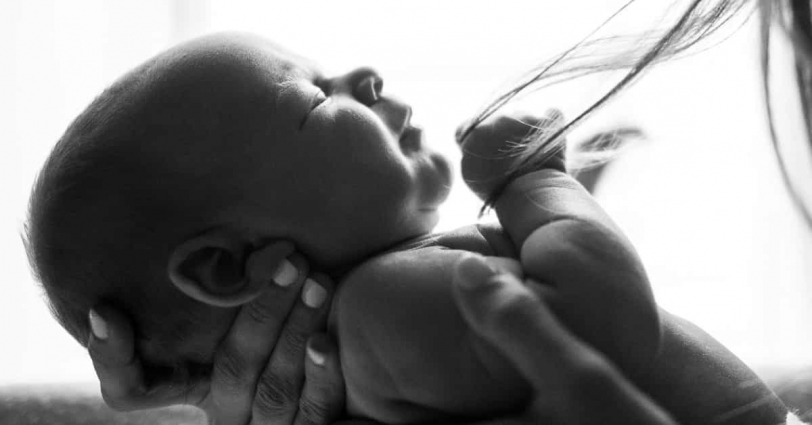

It’s a story of a time when hospitals couldn’t cope with the shift from home births, which were the norm, to giving birth in a hospital.



Although it’s rare now, apparently baby mix-ups used to happen frequently back then.
In “ねじれた絆”, the focus is on a girl who is mistaken for another child. However, the movie is about the story of the “father” played by Fukuyama Masaharu. This is the biggest difference. As a result, the movie strongly raises the question of “what is family?”


Movie Synopsis
It would be nice not to be too much trouble.
Nonomiya Ryota mutters this to himself after receiving a call from the hospital where his son Keita was born, saying that there is something they need to talk about. Ryota, who works for a major company in the city, has a lifestyle that everyone envies, with a high income and a nice house. However, because he is so busy with work, he doesn’t have much time to spend with his son.


However, he is very dedicated just to his son’s education. He has enrolled his son in piano lessons, has given him entrance exams to kindergartens, tells him to take baths alone, and is strict about greetings. When he learns that his son has missed piano lessons, he blames his wife, saying that it will take him three days to make up for the missed lessons, but he stays in his room to work. Although their life may be envied by the public, they are not a cohesive family. Ryota, however, believes that this kind of environment is the best for his son.
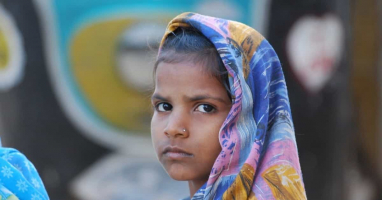

On the other hand, Saiki Yudai, who runs an electric shop in Gunma, is raising three children, led by his eldest son Ryusei. They value “being able to do anything alone” more than studying, and live a relaxed and fun life. Although they do not live in affluence, their family is always filled with smiles. They face various difficulties, but get along well with Yukari, his wife.
The reality of a “baby mix-up” situation was thrust upon these two contrasting families. Six years ago, Keita and Ryusei, who were born in the same hospital, were switched at birth, and both families raised them without noticing the mistake. The hospital apologized and stated that “in such cases, families will always choose to exchange” along with their apology.
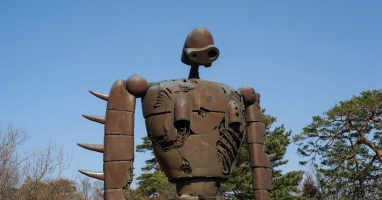

Nonomiya and Saiki families are greatly shaken.
Why didn’t I notice? I’m his mother, yet…
Midori, Keita’s mother, blames herself.


Could we take them both in? I can prepare a significant amount of money.
Ryota has always had the feeling that “my child is not very capable even though he is my own.” With the revelation of the “mistake,” he proposes, “Could you also let us take in Ryusei-kun?” While holding dissatisfaction towards his parents during his childhood, Ryota has not yet become accustomed to the position of a “parent” and ends up with a response lacking in imagination.




Someone who has never lost before really can’t understand how others feel.
Of course, Yudai cannot agree with Ryota’s argument. Yudai sees Ryota’s “unacceptable behavior” as a “potential issue with his way as a father and even as a human being”.
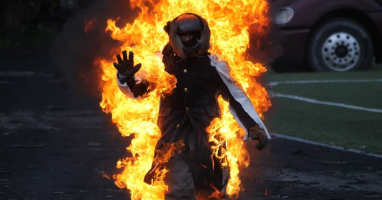

Yudai’s wife, Yukari, also feels uncomfortable with Ryota’s “way of being a father” and says,
Only men who don’t feel connected to their children stick to whether they look alike or not.
What is the situation for children? They start going back and forth to each other’s homes without being telling told them the details of their situation, in anticipation of a future “exchange”.
When am I going to Ryusei’s house next time?
Keita is probably fond of the Saiki family. Although there are only a few scenes that are clearly depicted, Keita probably has complex feelings for his father, Ryota. That is why he was able to realize for the first time what a father is like in the Saiki family.


What time is it now?
On the other hand, Ryusei couldn’t understand why he had to be in the Nonomiya family. He couldn’t wait to go his home. This is because he knew that this wasn’t where he belonged.
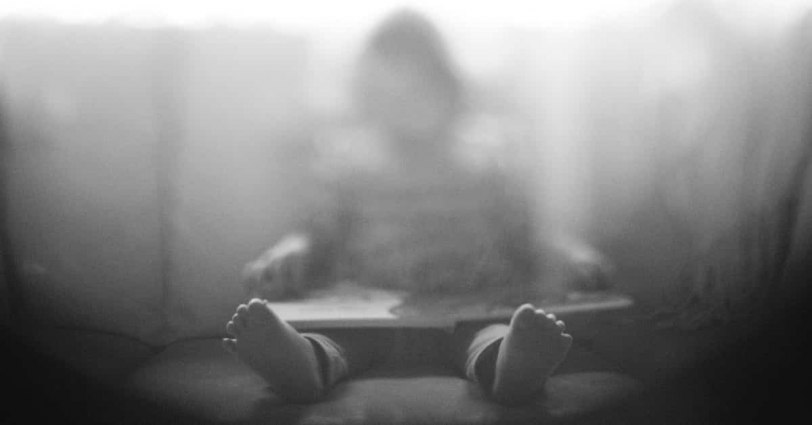

The reality of the “mix-ups” moved many people’s lives in different ways.
I think it’s good that there are many different types of families.
Ironically, just Ryota, who speaks those words, ended up being the one who breaks away from the circle of “parent-child” and “family”.
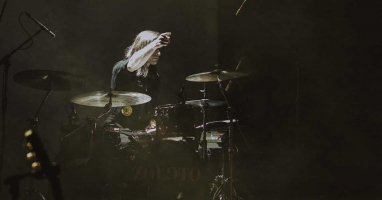

I Can’t Quite Understand the Importance of “Blood Ties”
Before delving into the contents of the movie, it’s best to explain my stance on the concept of “family.”
I always wonder, “Does to be related by blood really hold that much significance?” Of course, If you say, “You just don’t understand it because you have never been confronted with some kind of reality regarding ‘blood ties,'” I have no words to reply. At least for now, it seems unlikely that I’ll ever discover that I’m adopted or have a blood type that couldn’t possibly come from my parents. Additionally, I’m not married and don’t have any children, so I haven’t had to face a situation where I’m not related to my own child by blood.
Therefore, ultimately, it’s all just imagination, but no matter how I imagine it, I cannot feel “to be being related by blood” as a top priority for me.


To be honest, the idea of “family” feels strange to me. That’s because it’s assumed that people should be together just because they’re related by blood, even if they don’t have anything else in common. I’ve always found that strange.



In the end, I haven’t really felt any kind of closeness towards my parents or siblings.
You’d feel “family by blood” is more distant than “strangers by not blood,” right.


Of course, when it comes to “family”, there is an experience of having spent a long time together that is not easily achieved in normal human relationships. Therefore, it would be natural that the “sharing of time” has a significant impact on the relationship. However, this can work for better or for worse. In my case, spending a long time together only made me feel like “I really don’t feel right with these people” since I was a child. For me, the “sharing of time” only had a negative impact.


Also, I have no plans to get married and raise children, but I have always thought that “if I were to raise a child, adoption would be best”. In the first place, I am not good with “existences that cannot communicate”, including pets, so I do not like babies either. So if I were to raise a child, I always think it would be nice to take in an adopted child who is around middle school age and raise them.


Of course, I understand that my way of thinking, like what I wrote here, is completely out of sync with society. I don’t think everyone believes that “blood ties are the most important thing in human relationships,” but many people feel that “relationships connected by blood” are important, regardless of whether they are the most important or not, so my way of thinking probably won’t be empathized with. I understand that very well.
As such a person, even if I write my thoughts on this movie, I probably won’t be understood. However, I would be grateful if you could read this article while understanding what kind of person is writing it.



Of course, I sometimes wish I were a person who could feel intimacy with my family.
But it’s just not possible, no matter how hard you try, right.


The Difference in How We Perceive “Child-Rearing” and “Happiness”
In the movie, of course, “blood ties” are important, but they are not the center of the conflict between the two families. Both families struggle with the same kind of agony over “blood ties.”
What is emphasized as the difference between the two families is their perspectives on “child-rearing” and “happiness.”




Saiki family is a household that seeks “current happiness.” They don’t know what will happen in the future, but let’s put priority on “enjoying the present” first. Such a way of thinking is strongly evident. Children grow up very quickly, and they can only be involved with them at that moment. So, it’s natural to think that “cherishing each and every moment” is important in child-rearing, and many people would consider the way of life of the Saiki family to be “happiness.”


On the other hand, the Nonomiya family (or rather, Ryota) prioritizes “future happiness”. This can also be seen as one perspective in thinking about “parenting” and “happiness”.
Ryota’s parenting is quite strict. He emphasizes Keita’s extracurricular activities and studies in order to “increase the value that will be obtained in the future”. Ryota takes a tough approach with Keita, believing that “although it may be tough now, it will definitely be useful in the future.”


When looking back as adults, some people may feel grateful that their parents were strict with them when they were children. So, I think a parenting stance like Ryota’s is also valid. Personally, I don’t like methods that force someone to do something they don’t want to do, because I believe that won’t lead to growth. However, I don’t think it’s necessarily wrong.
For example, athletes who compete in the Olympics may have been pushed to train from a very young age, even before they fully understood what they were doing.



Whether it’s good or bad, it seems like that’s what it takes to become a top athlete in the sports world.


The Saiki family and Nonomiya family have significantly different criteria when it comes to “parenting” and “happiness.” Because of this, conflicts arise. While both sides certainly value “blood ties,” they also face disagreements where neither can accept the other’s sense of “parenting” or “happiness.”


When it comes to “how one wants to interact with their family,” the base of values would be based on the “relationship with their own parents and relatives,” whether good or bad. Because of this, there may not be many opportunities to think about “one’s own family view.” In this movie, by depicting two extreme types of “families,” it could be a chance to reconsider “what kind of family view” you have.
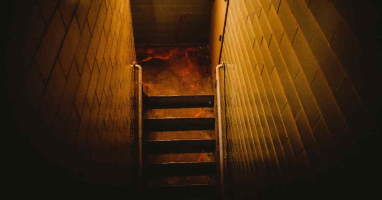

Issues with Ryota’s Approach to “Child-Rearing”
So far, I have touched upon the idea that “there is no wrong approach to child-rearing for both the Saiki and Nonomiya families.” Both approaches are valid, but the fact that they clash with each other is also one of the highlights of the movie.
However, this movie also focuses on Ryota’s approach to child-rearing, specifically “how he perceives his child.”
If Ryota were purely “raising his child” with just Keita in mind, then his behavior wouldn’t be much of a problem. However, despite saying that he’s thinking about Keita’s future, I can’t help but feel that Ryota is only thinking about himself in reality.


I felt that to Ryota, Keita was nothing more than a “clay” figure. It seems that Ryota only thinks of Keita as a “clay” figure that he can mold into an art piece, much like a pottery artist who creates a work of art by kneading and shaping clay. In one scene, he expresses his true feelings to a former classmate:


I’ll just keep him with me for now. We’re related by blood, so somehow we’ll make it work.
This statement alone implies that he doesn’t prioritize “his child’s well-being” and instead sees his child as a “clay” figure to mold into an art piece.


I feel that we should be discussing Ryota’s parenting stance, rather than the idea of “blood ties.” Personally, I really dislike the way Ryota treats his child like “clay.”



I just can’t tolerate people who think “children should be subservient to their parents.”
And what’s worse, they don’t even realize they’re doing it, and try to justify it by saying they’re doing it for their children’s sake.


However, if Ryota’s idea was being stayed within the Nonomiya family, then I understand that it is not a problem that others interfere with. It’s just a matter of my personal likes and dislikes.
In the movie, there are scenes where Keita is shown feeling uneasy about his father. Although it is not clearly depicted, Keita probably feels some kind of “sense of difference” towards his father. However, on the other hand, he may also seem to be swallowing his own feelings, thinking that he is wrong for feeling dissatisfied, because he is his own father. When I see such Keita, who is not in Ryota’s field of vision, I feel like saying “Ryota’s stance is wrong”. However, since there is no abuse taking place, I also feel that “this is a problem for the Nonomiya family and there is no room for outsiders to interfere”.


However, it is not the case since the “baby mix-ups” was revealed. “Ryota’s stance” is not limited to the Nonomiya family, but also relates to the Saiki family. That is why this “Ryota’s stance” becomes a “problem” that arises.
Why do I have to be told such a thing by the electric shop?
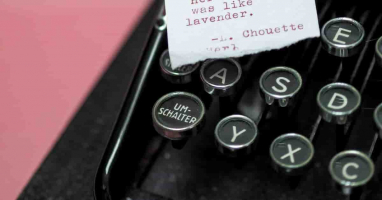

Ryota, who had no choice but to be involved with the Saiki family, expresses his “discomfort” towards them in various situations. From the perspective of the audience and how it is depicted in the movie, it should be said that “there is a flaw in Ryota’s argument.” However, Ryota himself believes that he is “doing the right thing” and anyone who obstructs his stance is “incomprehensible.”


Why am I being had a condescending attitude?
For him, it must be like “I was interrupted while creating with ‘clay’.” That’s the only way he can see “child-rearing”. And even his wife, Midori, is the target of his “discomfort.” Until the “mix-up” is revealed, Midori doesn’t openly oppose Ryota’s stance. However, she still feels uncomfortable about Ryota’s child-rearing. And with the revelation of the “mix-up,” the difference in their thoughts as a couple becomes starkly apparent.


The process of such Ryota becoming a father is the main focus of this film.



I’d like to emphasize the word “consequently,” but I think it’s probably a good thing for Ryota that the “mix-up” happened as a result.
Because that’s what brings his stance on parenting into conflict with various values, and he himself changes as a result, right.


Keita and Midori, Each of Their Stories
Keita and Midori are both being tossed around by Ryota.
There was a very memorable scene regarding Keita that probably became a turning point for Ryota’s thoughts. I won’t touch on that scene itself, but I’d like to explain another scene that leads up to it.


When iIt was a rare occasion when Ryota was playing with Keita at the park. Ryota had a digital single-lens reflex camera that seemed expensive and was taking pictures of his son. Keita wanted to take pictures too, so Ryota handed him the camera and even offered to give it to him. However, Keita responded with “I don’t need it.”
The fact that Keita answered “I don’t need it” here will have a great significance later on. I would like you to see the movie to find out what it means, but I felt that this scene was also important in that it should be the first time that Keita acted in opposition to her father.


I feel that Ryota and Keita’s relationship was probably balanced on a tightrope, with “Keita making choices that aligned with Ryota’s wishes”. Keita has always felt dissatisfied and uncomfortable, but it was a relationship that it makes me feel that his decision to suppress his discontent and follow Ryota’s lead would has been lasting for a long time.


Keita is generally a man of few words, and even when he speaks, he always uses polite language that is mindful of his father’s expectations. That’s why it was so impressive when Keita gave the unexpected response of “I don’t need it” to his father’s offer of an expensive digital camera. Furthermore, the short phrase “I don’t want it” was filled with great meaning and would later open Ryota’s eyes, and was a very important and memorable scene in the entire film.





It’s probably something that’s often said, but I thought that children also raise their parents.
Especially for “fathers,” it seems to take more time to become a “parent” compared to “mothers.”
In contrast to Ryota, his wife, Midori, is portrayed as the one who takes charge of all the Nonomiya family’s “sadness” in the “mix-up”. In the first place, she has to deal with the unusual situation of “exchanging children to get used to each other’s homes” alone, as Ryota is often absent and she does most of the housework and child-rearing.


Although not clearly depicted, I think Midori had her own conclusion from the beginning when the “baby mix-up” was discovered. That’s why she expresses her anguish like this:
I’m sorry for Keita…
She blames herself for not noticing the mix-up and feels the pain of not being able to open up to her husband about her true feelings. She has a strong conviction that her husband will not understand her feelings. That’s why she ends up grappling with the difficult situation all by herself, feeling lost and troubled.


In a certain scene, I was moved when she said the following words:
Keita is surely like me.
I can only imagine what kind of emotions led her to say that, but I think it shows how much she struggled with the harsh reality she was facing.


Conclusion


This movie makes you think, “What would I do if I were in that situation?” There isn’t just one right answer, and we might have to walk a path in life where we make the choices we’ve chosen into the “correct” ones.
Through the characters who are confronted with such a harsh reality, I also believe that this is a movie that makes you think again about “what is family?”


Published Kindle books(Free on Kindle Unlimited)
“The genius Einstein: An easy-to-understand book about interesting science advances that is not too simple based on his life and discoveries: Theory of Relativity, Cosmology and Quantum Theory”
“Why is “lack of imagination” called “communication skills”?: Japanese-specific”negative” communication”

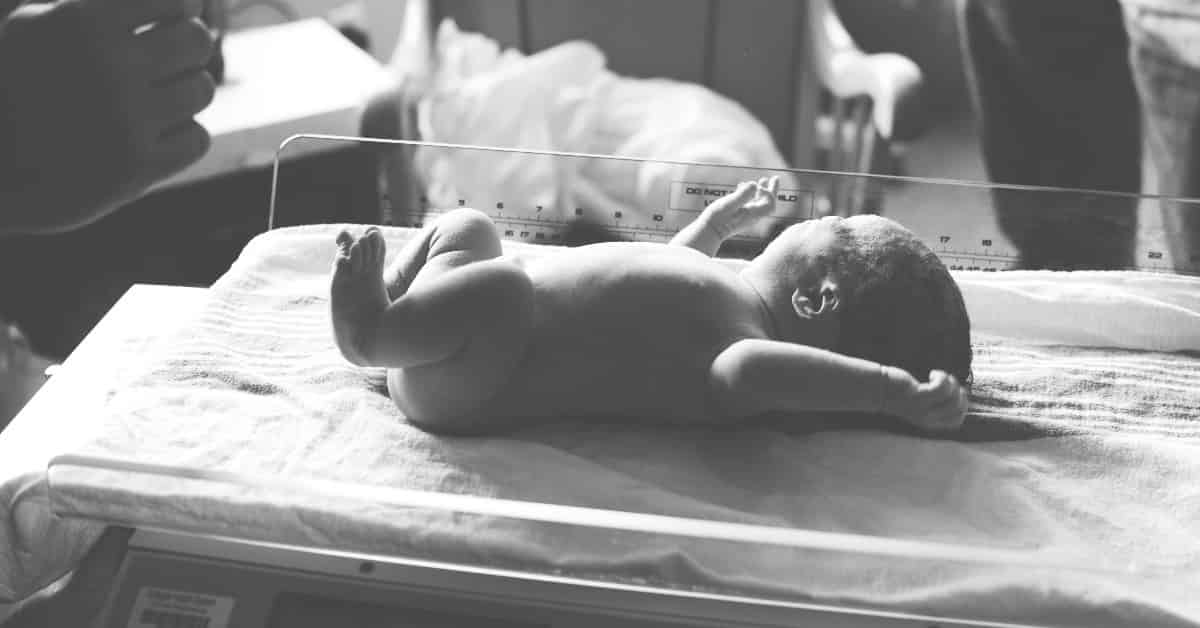





コメント